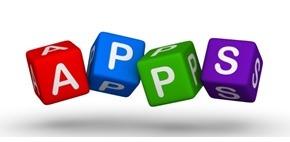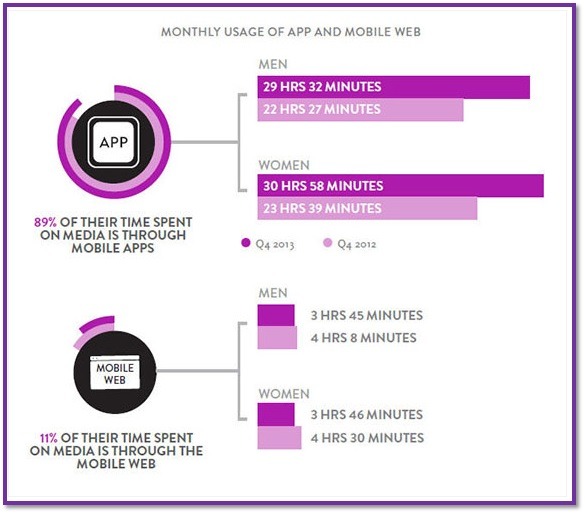Last week, someone sent me a blurb about the hottest new iPhone app concept. Amazingly, it comes from the team at Oscar Mayer. It’s an alarm clock app that awakens you to the smell of bacon. That’s right – an iPhone attachment that you have to apply for (yes, there’s the rub) produces the aromas of bacon.
While this may not go over well in kosher households and it is a bit clunky, it underscores the creativity and fun that has defined the app business.
 I know this on a first-hand basis. Roughly 100 days after Apple opened its App Store, we launched jacAPPS. In many ways, it reminded me of the birth of the Classic Rock format – some early believers, a lot of cynics, and many predictions that it would never last.
I know this on a first-hand basis. Roughly 100 days after Apple opened its App Store, we launched jacAPPS. In many ways, it reminded me of the birth of the Classic Rock format – some early believers, a lot of cynics, and many predictions that it would never last.
In the case of mobile apps, we had an intuitive belief (later reinforced by our Techsurveys) that Americans would become addicted to their smartphones. And they love the idea of pushing a colorful little button (or icon), and something amazing happens as a result.
We have had our share of debates about apps vs. the mobile web, and a few potential investors along the way have told us point blank that apps are a fad, pointing to Europe, Asia, and other sectors of the world where opening up a browser and surfing to a mobile site is popular.
Not in America.
We’re about convenience, simplicity, and elegance. And that’s why apps work. Apple and Android may be in a virtual dead heat, but when it comes to apps, you have to give Steve Jobs and the team in Cupertino credit for nailing this phenomenon, and making “app” a household word.
Now Nielsen has come along and affirmed what we’ve seen and believed all along – apps kick mobile websites’ ass. From their newest “Cross Platform Report,” Nielsen clears it up – in a big way. The numbers below for men and women tell you all you need to know about app usage and growth:
As we have said to radio companies since 2008, the industry is blessed that our brands can occupy prime real estate on the desktop of iPhones and the hottest Samsung handsets. To be part of the app ecosystem is an amazing opportunity given that mobile is the most exciting technological event of our lifetimes.
Great radio brands should have their own apps – and not share this incredible space with hundreds of other stations in the same space in what we call “umbrella apps.” In the mobile space, the biggest and best stations have an opportunity to create multiple apps that give consumers opportunities to have better mobile experiences – whether it’s discovering the best local music, skiing conditions, sports scores, or games.
For an industry that is guilty of over-commercialization to a point where consumers want to scream (or just leave), the mobile space provides more opportunities to make money, serve audiences, and grow brands.
BTW, Nielsen is truly providing the industry with some strong research. Thanks to them for showing us the data path with these new avenues and exciting platforms.
Now that they’ve cleared up another of those digital dilemmas, isn’t it time every radio company developed a true mobile strategy.
- What To Do If Your Radio Station Goes Through A Midlife Crisis - April 25, 2025
- A 2020 Lesson?It Could All Be Gone In A Flash - April 24, 2025
- How AI Can Give Radio Personalities More…PERSONALITY - April 23, 2025





Great stuff, as usual, Fred! I read a report a couple of weeks ago that said brands shouldn’t have apps,m but they weren’t talking about audio brands. I think you’re absolutely right, stations can have more than one app and have to have at least one app of their own, whether or not they’re part of one of the “umbrella” apps.
Let’s put it in radio terms. An app on a phone or tablet’s home screen is like having a button on a car radio. Why would you NOT want that, even if you’re in another app with hundreds of other stations, which may serve some actual needs, like looking for local news in other markets? Own your real estate and use it to your advantage.
Thanks for all you do. Keep up the great work!
Mark, thanks for the kind comments. As you point out, the app solution is actually pretty simple and elegant. By developing two apps – for iOS and Android – you end up with a prime position on more than 90% of smartphones in the U.S. Where else is radio going to get that kind of ubiquity? Thanks again.
This is analogous to being on the dash in a connected car – you need a “button” (in this case an icon) to be considered with every other form of media/app/game. Without it, radio is basically not a smart phone option.
Given increased media competition and the inevitable media free for all in connected cars, radio should jump on every new brand extension opportunity. Apps, blogs, video and social media are all ways that personalities and their stations can reach beyond their signals to connect with listeners. And some of those are great for connecting listeners with advertisers.
Apps should be a no-brainer for radio. Why every radio company hasn’t reached out to JacApps or some other provider and done a company-wide deal is beyond me. I’ve quoted this former GM from long ago before – “you have to put a signal over them. They’re not gonna drive to where you are…”.
Smartphones is where “they” are in 2014 and beyond. An app is radio’s signal on a smartphone.
It’s very sad that such has to be spelled out – but the lack of app adoption/maximization in radio seems to suggest that it does. I’ll bet Jerry Lee’s station has one!
Bob-
Hard to fathom, but I couldn’t find an app for Jerry’s station on the Android Google Play store. Not sure if he has an iOS app, I live in Android World.
I believe the decision not to stream is still in force at WBEB. I have a feeling that when Nielsen’s stream measurement changes, WBEB will reconsider that position.
From your lips, Bob. Whether they come to us at jacAPPS or another developer, a key is to carve out a mobile strategy – and not just build an app. You have to be where listeners are – as you stated: “put a signal over them.” Consumers are addicted to their phones, they carry them everywhere. I want them to be able to listen to our stations on their smartphones. But as we know, the mobile opportunity is SO much bigger than that for radio. Thanks again.
Were age demographics gathered during this survey? Was there a difference between the average and median age of women compared to men?
Thanks.
Good questions, Thurston. My assumption is that there is detailed demographic information that was gathered, but to my knowledge, not released. Thanks for the note & for asking.